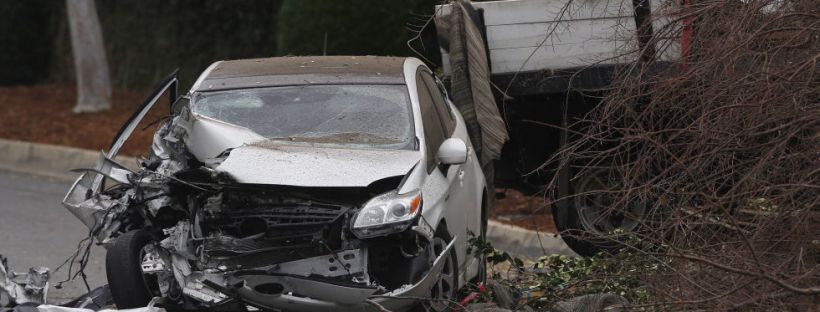If something goes wrong with your car and you don’t know much about car repair, then it’s time to go to the shop and find out what’s wrong. However, lots of people are understandably worried about getting ripped off—mechanics are pretty good at detecting when a customer doesn’t know anything about cars). To avoid this, it’s a good idea to narrow down the possibilities of what’s going on inside your car. Your sense of sight, hearing, touch, and smell are the only tools you’ll need.
LOOK AROUND YOU
A few sight checks can help ensure that important parts of your car are working as they should be. Here’s what to look for:
Warning lights: The warning lights on your dashboard are the most obvious starting point. Yet the most common, the Check Engine light, can be utterly confusing because it can cover problems ranging widely in severity. Others, like the engine temperature light, tire pressure light, or oil light are more straightforward to decipher. Regardless of what lights up, never ignore it. Delaying a diagnosis and repair could lead to even bigger problems down the road.
Tire check: Take a close look at your tires to make sure they’re in good shape. Tires have a tread that increases grip and channels water away from the contact patch, reducing your chances of hydroplaning. Maintaining sufficient tread depth is important, and checking takes a matter of seconds.
Find a penny and stick it in the tread, with Abraham Lincoln’s head pointing toward the center of the wheel. If you can see the top of his head above the tread, the tires are worn and need to be replaced. Also keep an eye out for cracks and bulges in the sidewall, which can form in hot weather or if you drive over debris in the road. Cracks and bulges are weak points which can fail unexpectedly, so it’s smart to replace any tires with these defects.
Fluid puddles: If you ever spot fluid collecting underneath your car, it’s cause for concern. Whatever type of fluid it is, it’s vital to your car’s reliability and performance. Whether it’s brake fluid, steering fluid, coolant, or oil, leaks should be fixed as soon as possible. Whenever you pull out of a parking spot, keep an eye out for drips or puddles.
LISTEN UP
Keep your ears open for anything out of the ordinary, such as:
Clunking or creaking: Worn-out suspension components often make a clunking or creaking sound. If a suspension strut or shock is worn out, it can clunk when force is placed upon it, especially when driving over a bump. Ball joints and bushings require grease to stay lubricated and moving smoothly. If the grease dries out, it can creak like an old staircase.
Ticking or squealing: Hearing a rapid tick or prolonged squeal can indicate an issue with a belt under the hood. A loose timing belt can tick as it slips over the pulleys that connect it to the camshaft and crankshaft. Squealing, especially when turning the steering wheel, is often caused by a stretched out power steering belt or failing power steering pump.
However, a high-pitched squeal when you push the brakes probably means that the pads are worn out. Brake pads have a wear indicator that comes into contact with the rotor as the pad material wears away, letting you know it’s time for a new set.
Popping or banging: Engine backfires occur when fuel ignites when it’s not supposed to, producing a popping or banging noise. Multiple issues can cause backfires, from worn-out spark plugs, an imbalanced air/fuel mixture, out-of-sync ignition timing, or dirty air filters. Regardless of the cause, you should get a backfiring engine inspected right away.
Grinding: Grinding is often heard when there’s an issue with gears meshing together, so unsurprisingly transmission problems cause this noise. Your transmission won’t work well if it has worn out gears or if the fluid is low, so if you hear a grinding noise along with rough shifting, you have an idea where to look.
Bad brake rotors can also make a grinding noise, but if they’re in good shape it could be that some debris is caught in between the pad and rotor.
Bubbling or gurgling: This noise usually means there’s air mixing with fluid. It could be a leak in your cooling system, which allows air into the radiator and increases the chances of overheating. A blown head gasket can also allow exhaust to enter the cooling system, which can cause a bubbling or gurgling sound when the engine is running.
FEEL OUT FUNKINESS
Your own body is also an excellent tool for feeling out car problems. Maybe you feel an unusual vibration, bumpy ride, or abnormal resistance. Just keep your hands on the steering wheel and feet on the pedals to detect a problem.
Vibrating or shaking: Numerous issues can cause shakes and vibrations, so make sure to inspect them all before coming to a conclusion. First up, check your wheels and tires. It could be that they’re misaligned or out of balance, reducing your handling and fuel economy while increasing tire wear. A lug nut could be loose, too. Worn mounts won’t hold the engine or transmission tight against the frame, leading to vibrations.
Failing suspension can also vibrate, since it can’t work as well to dampen the normal impacts your car experiences. Warped brake rotors will vibrate whenever you touch the pedal. Problems with engine timing can also cause serious shaking. If all that checks out, inspect the bolts that mount your seat to the floor.
Leaning or pulling: It’s scary when your car pulls in a direction you don’t want it to go. Most often it’s a problem with the wheels, tires, steering, or suspension that causes your car to lean or pull. A fix could be as simple as inflating your tires, so check their air pressure first. Failed shocks frequently tilt a car off-balance, which will be plain to see, but you’ll also detect a rough ride along with a pulling sensation.
If a wheel bearing or the steering linkage is going bad you’ll feel a distinct pull. In front-wheel drive cars, torque steer can also cause a pulling sensation under strong acceleration, but this is normal.
Spongy or low brake pedal: Brakes are arguably the most important safety system in your car, so any unusual feeling in the pedal should be taken care of right away. Spongy brakes don’t respond as well and are most often caused by air in the brake lines, or low or old brake fluid. Low fluid can be topped off, but old fluid absorbs moisture and can’t maintain enough hydraulic pressure to provide consistent, firm brake feel. Spongy brakes or a pedal the goes lower than normal can usually be fixed with a brake fluid flush.
Steering feels loose or hard to turn: Your car should go in the direction the steering wheel is turned – it’s as simple as that. If the steering wheel feels disconnected or has increased resistance, it’s only going to make it harder for you to safely control your car. Tie rods and tie rod ends work to connect your front wheels and steer them together. If the steering wheel feels loose, it’s likely due to an issue with these components. Conversely, if the steering wheel feels difficult to turn, it’s probably an issue with the power steering system – either the power steering fluid, pump, or belt.
FOLLOW YOUR NOSE
An unusual smell in your car can indicate a variety of problems, none of which can be fixed by hanging an air freshener over the rearview mirror. It could simply be that your interior needs a thorough cleaning, but there are certain odors associated with mechanical problems or failing parts.
Mold or mildew: The nasty smell of mold will make your car an unpleasant place to be. Start by feeling your carpets and floormats for dampness. If they’re wet, it could be that there’s a leak somewhere that’s letting water into the interior. An old, dirty cabin air filter could also be the culprit, but fortunately it’s quick and inexpensive to swap in a new one. Another potential is in the air conditioning system, with water buildup on the evaporator or in an air vent.
Smoke or burning: As the saying goes, where there’s smoke, there’s fire, so if you smell burning in your car diagnose it immediately. If you notice it when you’re braking, it’s probably that you’re braking too hard or for too long, causing the brakes to overheat. You can downshift a few gears to slow your car without the brakes. A worn clutch in a manual transmission vehicle can also produce a smoky smell.
However, it could be a leaking fluid that’s burning up on hot engine or exhaust surfaces. Check inside your engine bay, especially near seals and gaskets, to see if there are any damp spots that indicate a fluid leak.
Exhaust or fuel: A hole in the fuel or exhaust system can allow their telltale odors into the cabin. Regardless of the cause, it’s outright dangerous if you smell either. Car exhaust is rich in carbon monoxide, which can lead to unconsciousness or death if inhaled. If this smell appears in your car, make sure you drive with your windows open so fresh air can circulate through the cabin until you make a permanent fix.
Sulfur: The pungent aroma of rotten eggs indicates an issue with the battery or catalytic converter. Many car batteries are filled with a mixture of water and sulfuric acid. The water can evaporate as the battery nears the end of its lifespan, upsetting the proportions and making the sulfuric acid odor more noticeable. The catalytic converter, which helps filter exhaust gases, can also start to stink when it’s going bad.
Sweet: Coolant, also known as antifreeze, has a uniquely sweet smell, which likely means you have a coolant leak on your hands. A coolant leak won’t let your engine maintain correct temperature, increasing the chances of overheating and serious engine damage.
Being able to fix car problems takes years of experience, but anyone can at least make an effort to diagnose them. Next time your car has an issue, don’t rely on a mechanic to tell you what’s wrong – use your senses to get an idea of what’s causing the problem.
Source: https://goo.gl/WHVV18
car repair shops
car service dubai
car service in dubai
car service maintenance
vehicle maintenance
vehicle maintenance services

